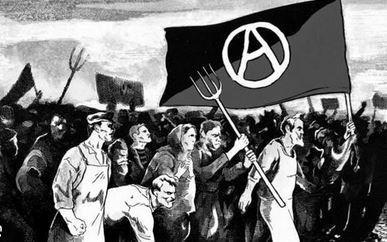Anarchy is a term that often conjures images of chaos and disorder, but its actual meaning is far more nuanced and varied. This article delves into the principles of anarchy, its different forms, and its implications for society.
What Is Anarchy?
Anarchy refers to a political philosophy and social theory that advocates for the absence of a centralized government or authority. The term originates from the Greek word “anarchos,” meaning “without ruler.”
- Definition: Anarchy is the belief in a society organized without hierarchical structures or coercive institutions. It emphasizes voluntary cooperation, mutual aid, and self-governance.
- Misconceptions: Common misconceptions include equating anarchy with chaos or violence. However, many anarchists advocate for peaceful, orderly societies based on mutual respect and collective decision-making.
Principles of Anarchy
Anarchy is underpinned by several core principles that guide its philosophy and practice:
- Anti-Authoritarianism: Anarchists oppose centralized authority and hierarchical structures. They argue that such systems lead to oppression and inequality.
- Voluntary Cooperation: Anarchy emphasizes voluntary and consensual interactions between individuals. Instead of being governed by coercive rules, people cooperate freely and willingly.
- Mutual Aid: Anarchists believe in mutual aid—helping one another without expecting anything in return. This principle fosters solidarity and community support.
- Self-Management: In an anarchist society, individuals and communities manage their own affairs. Decisions are made collectively, often through direct democracy or consensus.

Variants of Anarchy
Anarchy is not a monolithic concept; it encompasses various schools of thought and approaches:
- Anarcho-Communism: This variant advocates for the abolition of private property and the establishment of a common ownership of resources. It envisions a society where wealth and resources are shared equitably.
- Anarcho-Syndicalism: Anarcho-syndicalists focus on workers’ control of industries and trade unions. They aim to create a decentralized, worker-managed economy through direct action and strikes.
- Anarcho-Capitalism: Unlike other forms of anarchy, anarcho-capitalism supports the existence of private property and free markets without government intervention. It envisions a society where market forces govern all aspects of life.
- Eco-Anarchism: This variant integrates environmental concerns into anarchist principles. Eco-anarchists advocate for a harmonious relationship between humans and nature, emphasizing sustainable practices and ecological balance.
- Mutualism: Mutualists advocate for a society where individuals exchange goods and services based on mutual benefit. They support a market system that operates without state interference but with mechanisms to ensure fair exchange.
Historical and Contemporary Examples
Throughout history, there have been various attempts to implement anarchist principles, with varying degrees of success:
- The Paris Commune (1871): The Paris Commune was a short-lived revolutionary government in Paris that implemented many anarchist principles, such as communal ownership and direct democracy.
- The Spanish Civil War (1936-1939): During the Spanish Civil War, anarchist communities in Catalonia implemented anarchist ideals, including collectivized agriculture and worker-managed industries.
- Contemporary Movements: Modern anarchist movements continue to influence various social and political spheres. Groups and communities worldwide experiment with anarchist principles in areas such as cooperative businesses, intentional communities, and grassroots activism.
Anarchy in Practice
Implementing anarchy in practice poses several challenges and opportunities:
- Community Building: Anarchist communities often focus on building strong, cooperative relationships and self-reliant systems. This includes creating local networks for mutual aid and support.
- Conflict Resolution: Without centralized authority, anarchist societies develop alternative methods for conflict resolution, such as mediation and restorative justice practices.
- Economic Systems: Anarchist economic models vary, from communal ownership to free-market exchanges. The focus is on creating equitable and efficient systems that avoid exploitation and coercion.
Criticisms and Challenges
Anarchy faces several criticisms and challenges:
- Practicality: Critics argue that anarchy is impractical for large, complex societies. They question whether voluntary cooperation and self-management can effectively address large-scale issues such as security and infrastructure.
- Security Concerns: Some worry that the absence of a central authority could lead to instability and insecurity. Anarchists counter that community-based solutions can address these concerns through collective self-defense and mutual support.
- Misinterpretation: Anarchy is often misunderstood or misrepresented, leading to confusion about its true principles and goals. Clear communication and education are essential for addressing these misconceptions.
Anarchy’s Potential and Limitations
Anarchy represents a diverse and complex political philosophy that challenges conventional ideas about governance and authority. Its principles of voluntary cooperation, mutual aid, and self-management offer alternative approaches to organizing society. While anarchy faces practical challenges and criticisms, its emphasis on equality, freedom, and community continues to inspire discussions and experiments in social organization. Understanding anarchy’s core principles and variants provides valuable insights into alternative visions of society and governance.
